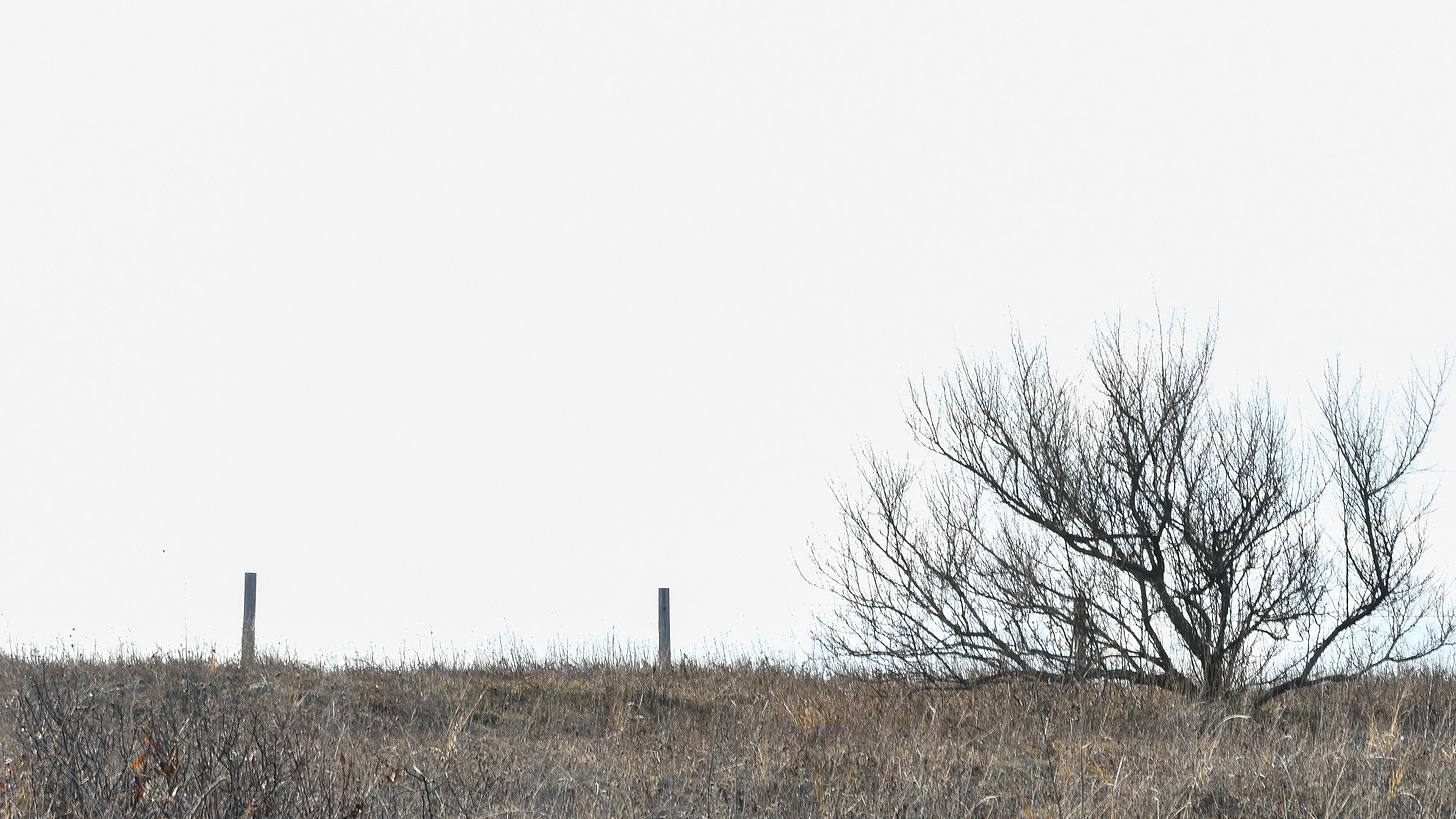Self-Betterment
Physical betterment as a gateway to mental and emotional betterment.
June 4, 2023
For some time, I’ve been focused on getting better. It started out in a specific context, with an emphasis on physicality. Now it is more abstract, less specific, with an emphasis on how I see and move through the world.
At first it was straightforward: Do this if you want to walk. Do this to mitigate muscle spasticity. Pushups can lessen tremors. Rebuild balance by walking heel to toe while looking side to side. Do bridges, calf raises, clamshells. “Do this.”
Now it’s less straightforward. No specific “do this.” Physical betterment was cut and dry: Begin strides with a heel strike, swing your arm when you walk. Emotional betterment is not. I try to look at scenarios in a better, not overly simple way. Make myself see that while I might think negative self-talk helps—“it makes me try harder”—it doesn’t. You see yourself the way you talk to yourself. I try to recognize inconveniences as just that, not cataclysms. Try to be more forgiving of myself and others, a better person. Not that I believe I’m a bad person, but there are always ways to improve.
Physical betterment, with the goal of returning to the baseline of ability I’d been at, provided a gateway to betterment at large. Physical tasks made sense to me. Straightforward—don’t be sedentary. I didn’t like to be sedentary to begin with, but sedentary I became. To the point my tailbone grew sore from sitting.
Having made physical progress—though I’ll never feel done—I’m concerned with mental and emotional betterment. Why was I bleak? Why did I never cut myself any slack? Did I enjoy being angry? What was appealing about it?
Being bleak is easy, isn’t as risky as being hopeful. Less to lose. You can say “I’m just being realistic” and convince yourself bleakness is okay—wise, even. I never cut myself slack because I expected too much, had unrealistic standards. As far as anger, I’d convinced myself I did enjoy it. The heightened feeling, being alert to what was wrong, energized by ire. Being angry meant I saw the world for what it was, I believed. Like bleakness, anger can masquerade as realism—is easy, doesn’t require compassion or empathy. Those are not easy.
I could enumerate questions I’ve been confronting, answers that’ve begun revealing themselves—about worry, negativity, control—but that would bog this down, and it’s already long.
Getting better can start with the body but evolve to be about the mind. Less straightforward, monumentally important. So goes recovering from the type of injury I sustained—traumatic brain injury to my frontal lobe. It made me worse, now I want it to be a catalyst for improvements.
If you’re tired of hearing about this—he’s still talking about that?—I apologize. Stop reading. When I write like this, it’s largely for me. Putting ideas into words helps me better understand them. Knowing they can be read oddly helps. If you’re tired of reading about this, imagine how tired I am of living it. You can’t just move on from something like this.
Your frontal lobe controls voluntary movement, hence my focus on regaining physical ability. It controls language. Dictates your personality. My personality is basically the same. Newly discharged from the hospital, I FaceTimed a friend, made a joke. Not really a joke, just a remark. Something kind of funny to be concerned with, given everything else I had to be concerned with. That remark made him realize: Yup, still him. My personality isn’t greatly altered—but I’m trying to improve it, alter it for the better.
Your frontal lobe also controls executive functioning. That includes planning, scheduling, punctuality, taking initiative, organization, reactions. I have always lived by the idea: If you want to be on time, be early. I’ve also been called a doer. A high compliment. Taking initiative is part of that.
The most apparent difficulties were in my reactions. I react much more reservedly now. For a time, I did not. When I react, in the moments preceding, I wonder to myself: Is there a better way to respond to this? In the hospital, I was correctly warned about how I’d react to situations, how I’d see things—that bad reactions might persist longer than I’d like.
Now I feel more in control. There have been situations that, however long ago, would’ve had me spiraling. Harmless example: I cut both my hands at work one day. No shortage of blood. Not too long ago, I’d have made a beeline for the worst case: They’re gonna get infected and require amputation! I’ll lose both my hands! That day, I wasn’t worried, didn’t care. Before this, I wouldn’t have cared either. Aside from the inconvenience, those cuts were a good thing. A test I passed. Didn’t become unhinged.
If you want to change, as I do, reading can help. Potential embarrassment aside, I’ll mention some of what I’ve been reading. Not my usual stuff. Cormac McCarthy recently passed, so it might be time for a foray back into fiction. Blood Meridian again or Child of God.
Writing about “self-betterment” embarrasses me. It reveals I want to work on aspects of myself, isn’t flattering. If I start something with the date I began writing, it indicates reluctance; I knew I’d mull it over before deeming it okay to publish.
I’ve been reading—not always linearly and not for the first time—Brené Brown’s The Gifts of Imperfection. It explains:
Somehow we’ve come to equate success with not needing anyone. Many of us are willing to extend a helping hand, but we’re very reluctant to reach out for help when we need it ourselves.
Nowadays I am quicker to ask for help. I have to be. Can think of recent instances I have. This has always been difficult for me.
I would not call this book “self-help.” Books I’ve been reading toe the line, so often address the genre. Brown does in her “Final Thoughts.”
I think most of us have developed fairly sensitive bullshit meters when it comes to reading “self-help” books…There are too many books that make promises they can’t keep or make change sound so much easier than it is. The truth is that meaningful change is a process.
A process indeed. I was spending time with a friend but couldn’t stop thinking about something I’d said to him earlier that day. Nothing negative about him, just a thoughtless comment made in passing—something I couldn’t help but feel I should not have said. Would’ve been easy not to bring it up, we were having a nice time, but I brought it up. Explained why it was bothering me, why I regretted saying it. We moved on, it was fine, but meaningful change is a process that sometimes requires doing little things like that. I intend to take the same dedication to my mentality I took and still take to regaining physical abilities.
If you see Brown’s book as self-help, let’s call it that. So what? I want to help myself improve. The book uses words that feel anathema to how I was. I don’t want them to stay that way. Self-acceptance, compassion, vulnerability, worthiness, belonging, the list goes on.
I have also been reading David Goggins, Never Finished. A little different than Brené Brown. Brown is a researcher and professor, Goggins is a lauded ultramarathon runner—a retired Navy SEAL who once did 4,030 pull-ups in a little over 17 hours. He encourages holding yourself to a high bar. While I am trying to get better about cutting myself slack, it remains possible to give yourself too much, and I don’t want to fall into that.
“This is not a self-help book!” the back cover declares. “It’s a wake-up call!” The same assertion is made in the first sentence of the introduction. Goggins grabbed me early on in the book.
All of us are dealt circumstances in life we don’t have any power to control. Sometimes, those things are painful; occasionally they are tragic or inhuman.
Some pages later:
If an act of God or nature tore your life apart, the good news is that you really have nobody to blame. Yet, the randomness of it all can feel so personal, as if you’ve been marked for doom by the fates.
I’d call the ongoing duration of this ordeal a wake-up call. The way of being I strove for wasn’t sustainable. That’s been made clear in many ways. This situation brought the worst parts of me to the fore. Situations of this sort have a way of doing that. If there were parts of me that weren’t great, this made them bald-faced, impossible to ignore. Looking back on those parts of me, I find solace in the fact that, until this happened, they weren’t as profoundly bad. That solace evaporates when I realize they were still in there. This injury exacerbated tendencies I already had—some I’d mendaciously told myself were good. The onus falls on me to get rid of them. Be better, happier, more positive. Easier said, but it can be done.
Reactions, positivity, and books aside, the frontal lobe controls voluntary movement. When the opportunity arises to do something physical, I do it. Hence that obsession with digging postholes, why I go for walks, try to run, lift weights. Neuroplasticity happens in response to “new” experiences.
On the flip-side of physicality, when the opportunity arises to see something in a better light, I try to do that too. As explained to a friend: “It feels bafflingly simple that I just had to change how I look at things.” Simple doesn’t mean easy. I was fishing recently. It’d been hours and I hadn’t caught one, opted to focus less on fishing, more on the sunset’s beauty. It’s no coincidence that some fishing parlance is “skunkset”—for a beautiful sunset that occurs while not catching fish.
Pretty much anything wasn’t doable at the start of this. The injury I got can end your life. Literally and/or figuratively. I am not dead in the literal sense. Regarding figurative death, I am massively fortunate. Not a day goes by where I don’t stop to appreciate that. It could’ve been so much worse. I have seen it firsthand and have a version of survivor’s guilt—that the TBI I sustained isn’t as bad as it could’ve been, as bad as TBIs often are. That doesn’t mean it’s been good, just that I got very lucky.
“He’s a miracle,” reacted the first neurologist to review an MRI of my brain. I wasn’t conscious yet, but she saw something. Some days I’ll think: This sucks, but could really suck. Never be anything but grateful. This could’ve been so, so bad.
Yes, I was hospitalized for months, was in a coma, had to re-learn to walk, to do everything—am still re-learning. But I’m moving forward. Mid-July will mark a year and a half since the accident. Might sound like a long time, but as far as TBIs go it’s not. This has been a journey and it’s not done. That year and a half includes my months of hospitalization and then months of rehabilitation appointments. The accident’s date works as a marker; doesn’t mean much else to me.
Now I’m back to work, a physical job. I dug a posthole deeper than necessary—we had to fill it back in a bit. Before digging, I remarked to who I was working with: “You know I love postholes.”
As we planned out what to do, he mentioned how we’d already finished some things a different day. “That was a good day,” I said. “Today will be another one,” he responded. I thought to myself later, unprompted: I am so happy. There are plenty of reasons I could latch onto for unhappiness, but why? I am getting my life back, reclaiming my existence. It’s not seamless, but I can be happy.
None of my happy moments or progress changes that this tribulation has been abysmal. Obviously, I would never choose this. Wouldn’t wish it on anyone.
One of my early occupational therapy exercises was hammer curls with three pound dumbbells. In a physical therapy appointment, I couldn’t squat a foam bar. Now I curl 35 pound dumbbells again, squat with a real barbell. Sometimes try a short attempt at a run.
I am not and have never been a runner. Hence “attempt.” There are actual runners I know of—they’re fast, run far. My friend just ran his third marathon. I did cross country for less than a season in high school. I was a cyclist, so was okay cardio-wise. Then I fell in love with lifting weights. From my lightest as a cyclist to my heaviest as a gym rat, I gained almost 90 pounds.
I still love to lift weights. Running I see as a healthy practice to prevent me from becoming what I could’ve. I do it to thumb my nose at that alternate reality. Running is challenging, prima facie, but doesn’t get easier with my lingering issues. Not a reason not to do it. By no means am I fast, and by no means do I run far. I just do what I do—slow, short, relatively infrequent—for me. Because I’m lucky I can. When I run at a better pace, it means my body has mechanically begun working as it should. It helps I’ve focused on being kinder to myself. So what if my time still isn’t fast? It’s good I’m out trying.
There’s a three mile loop I like. Last summer, three miles took 36ish minutes. Sometimes longer. A recent time I did my preferred loop it took 27.
I’ll sometimes run a mile to see what my time is. Again, by no means am I fast and I don’t run far. Recent times I’ve tried this, my time was in the ballpark of eight minutes. Not fast but I was pleased. Last year, I would’ve been accepting of 10:00 or 12:00.
The moral is I’m getting better. It’s a long road. I’m still not a runner, but I am getting better. They say: If you aren’t getting better, you’re getting worse. So I’ll keep trying. If that means being happy running slowly, so be it.
Physical betterment and emotional betterment aren’t mutually exclusive. When I can physically do something, it makes me happy—brings me joy. That joy arrives more readily when I am kinder to myself.
To veer back into meathead territory, I was happy to squat 205 again. My old predilection would’ve been to call myself words I won’t write here, because 205 was a warmup weight I’d usually just skip. I’d have told myself not to be happy about something insignificant, wait to be happy until I was back in the threes or fours.
But joy comes when I see 205 as significant, which to me, right now, it is. A neglected warmup weight to James of old—not to today’s James, focused on self-betterment.
Something I’ve always needed to work on is my penchant for pessimism over optimism. As with bleakness and anger, you can feel pessimistic, say “I’m just being realistic,” and convince yourself it is okay.
As I recognize improvements, I get optimistic. Not just physical improvements—though those certainly spark optimism. Working to see the world in a better way makes me optimistic. Situations will cross my path in the future and my reaction won’t be to fall back on “this blows” or lose composure. I’ll see the world in a better light—am working to facilitate that.
Recently I was asked to do something. You wouldn’t ask this of someone if you didn’t trust they’d be able to do it. It was twofold. The thing I’d been asked to do wasn’t easy at face value—even if I could do it before—and the place I was asked to do it wasn’t amenable.
My old reaction would’ve been self-doubt, certainty of failure, that I’d let people down, quiet annoyance I’d been asked at all. Instead, I worked to see it in a better way. I can do this. I am being trusted. This would’ve been no big deal—so it won’t be.
I did it. There was a small snafu about halfway through, but I thought on my feet. Seems it made sense to trust me. I was proud of myself after resolving that snafu.
To let my new optimism carry through, I am looking forward to whatever my life has in store. I don’t know what that is, but I know I’ll be moving forward with a better mindset. Will encounter change with less trepidation. Even my life right now, before I move to whatever is next, isn’t bad. I am content. There is much good here.
Of course I am not glad this happened. But it did, so might as well try to get some positives out of it. Experiences like this can reframe how you see life and the world. That’s happened here. I do feel these changes have occurred quickly—as if in quick succession negatives have decreased and positives have been gained. I used to dread another day when I woke up, now I look forward to it. A large part of that was getting back to work. Knowing I’m expected to be somewhere and do something, aside from pick up pennies at home by myself, has helped more than you know. It’s nice to have a feeling of purpose—accountability beyond to myself.
Also, the very real possibility that I could/maybe should be dead makes me want to go through life in a positive way. The way I was going through wasn’t bad, but wasn’t great—I want to make it better. It’s horrible this happened to me. I’m still not glad it did, but I would not be the person I am with the concerns I have if it wasn’t for this injury. I’m trying to live in a way where it’ll be good this did happen, good I got my wake-up call.











Thank you for allowing us into your thoughts. I’m always impressed with your writings.